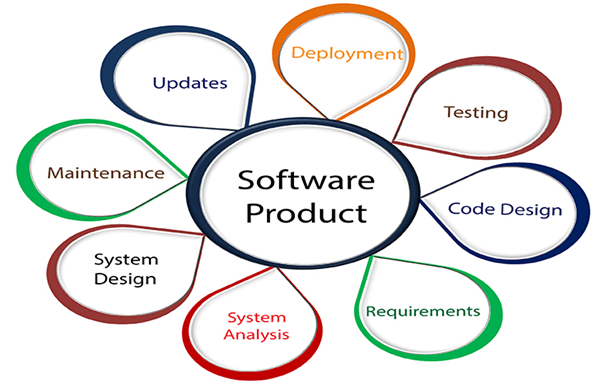Is Software Engineering Hard – A Complete Overview!
Yes, Software engineering is challenging but rewarding, offering job stability, high pay, creativity, and growth opportunities.
This article explores whether software engineering is hard, the challenges involved, and how to overcome them to thrive in this ever-evolving field.
Table of Contents
Understanding Software Engineering:

Software engineering applies engineering principles to design, develop, test, deploy, and maintain software systems. It creates reliable, scalable, and efficient solutions for diverse projects like apps, web platforms, and enterprise software.
The Skills Needed:
To excel in software engineering, a combination of technical and non-technical skills is crucial:
- Problem-Solving Skills:Software engineers often face complex, abstract problems that require logical thinking and innovative solutions.
For example, creating a search algorithm for a database or designing a user-friendly interface involves breaking down the problem into smaller, manageable components. Engineers must analyze requirements, anticipate potential issues, and develop effective solutions.
- Programming Knowledge:Mastery of programming languages is the cornerstone of software engineering. Popular languages like Python, Java, C++, and JavaScript serve different purposes:
- Python: Ideal for data science, machine learning, and scripting.
- Java: Frequently used for enterprise applications and Android development.
- C++: Preferred for systems programming, game development, and performance-critical applications.
- JavaScript: Dominates web development for creating dynamic, interactive user interfaces.
Soft Skills:
In addition to technical expertise, soft skills are vital for effective collaboration and career advancement:
- Communication: Engineers must explain technical concepts to non-technical stakeholders and collaborate within teams.
- Teamwork: Many projects require coordinated efforts with designers, product managers, and other developers.
- Adaptability: The tech landscape evolves rapidly, demanding the ability to learn new tools and technologies.
- Time Management: Balancing deadlines and priorities ensures project milestones are met without compromising quality.
Why Software Engineering Is Perceived as Hard:
Continuous Learning Curve:
Technology evolves rapidly, requiring software engineers to stay updated with the latest programming languages, frameworks, and tools. For instance, today’s popular frameworks like React or Angular might be replaced tomorrow.
How to Manage: Dedicate time to continuous learning through online courses, blogs, and tech conferences.
Complex Problem-Solving:
Software engineering involves solving intricate problems, often under tight deadlines. Debugging and optimization can be particularly time-consuming and frustrating.
How to Manage: Build a structured approach to problem-solving and seek support from communities like GitHub or Stack Overflow.
High Expectations:
Employers and clients often have high expectations, demanding software that is efficient, secure, and user-friendly. Balancing these requirements can be stressful.
How to Manage: Develop clear communication skills to set realistic expectations and prioritize tasks effectively.
Collaboration Challenges:
Software engineering is rarely a solo endeavor. Collaboration with designers, product managers, and other engineers can lead to miscommunication and conflicts.
How to Manage: Cultivate empathy and active listening skills to foster better teamwork.
The Rewards of Software Engineering:
Job Stability and Growth:
Software engineering is one of the most in-demand professions worldwide. The Bureau of Labor Statistics projects a 22% growth in software developer jobs by 2030, much faster than the average for all occupations.
Attractive Salaries:
Software engineers often earn lucrative salaries. According to Glassdoor, the average salary for a software engineer in the U.S. is $110,000 annually, with senior roles commanding even higher pay.
Creative Fulfillment:
Developing software provides opportunities to create impactful solutions. Whether it’s building a mobile app or automating a critical process, engineers leave a lasting impact.
Remote Work Opportunities:
Software engineering is one of the most flexible careers, with many companies offering remote or hybrid work options.
Read More: Is Cisco Fpr Software Or Hardware
Tips to Succeed in Software Engineering:
Master the Basics
Before diving into advanced topics, ensure a strong foundation in programming, data structures, and algorithms.
Build Projects:
Practical experience is invaluable. Build projects that interest you, such as a personal website, a game, or an AI chatbot.
Join Communities:
Connect with other engineers through platforms like Reddit, LinkedIn, or Meetup. Networking can lead to mentorship opportunities and job referrals.
Embrace Failure:
Every software engineer encounters bugs and setbacks. Treat these as learning opportunities rather than failures.
Common Misconceptions About Software Engineering:
You Must Be a Math Genius:
While some areas like AI or cryptography require strong math skills, many software engineering roles focus more on logic and problem-solving than advanced math.
It’s All About Coding:
Coding is a crucial part of software engineering, but the role also involves design, testing, and documentation.
It’s a Solo Job:
Software engineering requires collaboration with cross-functional teams to achieve project goals.
How to Get Started in Software Engineering:
Choose a Learning Path:
Options include:
- Formal education: A degree in computer science or software engineering.
- Bootcamps: Intensive, short-term programs that teach coding skills.
- Self-learning: Leveraging free and paid online resources.
Learn Popular Programming Languages:
Start with beginner-friendly languages like Python or JavaScript and gradually move to more complex languages like C++ or Rust.
Practice Regularly:
Platforms like LeetCode, HackerRank, and Codecademy provide hands-on exercises to sharpen your skills.
Seek Internships or Entry-Level Jobs:
Gaining practical experience is essential. Look for internships or junior developer roles to kickstart your career.
FAQ’s
1. Do I need a degree to become a software engineer?
No, many successful software engineers are self-taught or have completed coding bootcamps. However, a degree can open up more opportunities.
2. How long does it take to become a software engineer?
It depends on your learning path. A formal degree takes 3-4 years, while bootcamps or self-learning can take 6-12 months with consistent effort.
3. Can I become a software engineer without prior experience?
Yes, entry-level positions and internships are designed for beginners. Focus on building a portfolio to showcase your skills.
4. What’s the best programming language to start with?
Python is highly recommended for beginners due to its simplicity and versatility.
5. Is software engineering stressful?
It can be at times, but effective time management, collaboration, and a positive mindset can help reduce stress.
Conclusion
The key lies in understanding its demands, developing a growth mindset, and embracing continuous learning. The rewards—job stability, financial security, and creative satisfaction—make the journey worth it.If you’re passionate about technology and problem-solving, software engineering could be the perfect career for you. With the right resources, determination, and support, you can navigate the challenges and build a fulfilling career in this dynamic field.



